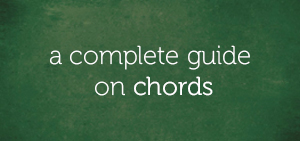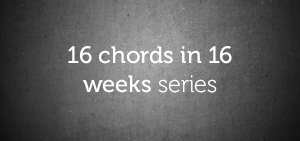In this lesson, we’ll be exploring the four main resources in piano/keyboard learning and how you can take advantage of them.
In the process of piano/keyboard learning and overall musical development, there are four main resources that will better your musicianship, help you overcome the steep learning curve, and take you by the hand and walk you through the learning process.
A lot of people think they can go through the school-of-hard-knocks all by themselves and end up becoming self-made. But it has always been a frustrating and sometimes unrewarding venture; especially now that we’re neck deep into the 21st century and life has advanced in all facets.
Today, I’m presenting you these four resources that will help you get to your next level at the shortest time possible. Let’s check them out.
The Human Resources
There are people who are ahead of your current skill level in music; and this is true even if you’re an advanced player.
It’s even truer if you’re a beginner or at the intermediate skill level because there are thousands to tens of thousands of advanced players in a world of almost 8 billion people.
These people ahead of you can either be actual people you know or people you’ve met in a virtual space like on Facebook, Instagram, and a variety of other social networks. While for the actual people you have met, they can either be your mentor, teacher, inspiration, role-model, etc.
All the human resources around you and ahead of your current skill level are for your benefit and that’s if you can get closer to them or follow them online so that they can directly or indirectly influence your musicianship positively.
So, the question is, with all the human resources you’re surrounded by, have you found the right human resource for you?
I’ll leave you to answer that.
The Literary Resources
Books, charts, manuals, quick guides, and every other musical resource that is written down belong to this category.
Through books, the knowledge of an author, an experienced musician, is captured on black and white and information is transferred from one mind to the other.
In this contemporary day and age, apart from having books on paperback, we also have books electronic books (aka – “e-books”), e-charts, and tons of other modern literary resources. You can download PDF resources (e-books) or charts in PNG and JPEG formats from a lot of music education websites both paid and free.
Additionally, there are blog posts (like the one you’re reading), and hundreds of thousands of web pages that you’ll find very relevant to your musicianship.
You don’t have to struggle as a musician when you are encompassed (to the extent that you’re now drowning) by an overwhelming volume of literary resources, especially online.
The Audio/Visual Resources
There are audio and video courses on music learning and they come in mp3 and mp4 formats. Older formats include CD and DVD formats and we even have cassettes and VHS tapes, although they are no longer in use.
Audio-visuals are amazing because you can literally feel the presence of the instructor because of the way his/her voice, facial expressions, and gesticulations make you feel.
There are dedicated sites like YouTube where you can find tons of audio-visual lessons on general music, other instruments, and every other aspect of life.
Beyond the audio and video resources, there are audio and video recordings of music performances for thousands of music artistes; especially those of your favorite artiste(s) or genre(s). This category of audio-visuals will expose you to performance and recording practices that you’ll find very helpful as a stage or studio musician respectively.
The Technological Resources
There are technological resources that can take your playing to the next level and improve your musicianship. Softwares, apps, and other technological inventions belong to this category of resources.
With the advent of a variety of computer and mobile devices (phones, tablets, etc.), music educators have resorted to the development of phone applications and computer softwares.
All you need is to find the right software or phone application, download it, and you’ll be able to study, learn, explore, and do exercises.
The future is even brighter with technological resources because of artificial intelligence and some day in future, it would be possible to learn music theory by data transfer from one mind to the other. I know it sounds crazy today but the truth remains that most of the things we have today were the fictions of yesterday.
Final Words
With all the resources at your disposal, you’re inexcusable; you can’t say “I don’t have the right resources” or stuff like that.
If you don’t have human resources (which I seriously doubt), I am very certain that other resources are available to you.
In a subsequent lesson, we’ll be comparing between these resources to know the advantages and disadvantages of each of them. We’ll also see what the best of resources would possibly be.
See you then!
Chuku Onyemachi
Latest posts by Chuku Onyemachi (see all)
- CHORD UPGRADE: How To INSTANTLY Upgrade Triads And Seventh Chords To Ninth Chords
- The Formation Of Diminished Seventh Chords Used To Be Challenging Until I Did This
- How To Form Seventh Chords In Two Shakes Of A Dog’s Tail Using Third Intervals And The Circle Of Fifths Chart
- I Played The 13sus4 Chord And This Happened…
- How To Build Seventh Chords Like An Architect Using “Foundation And Structure” Concept







Comments on this entry are closed.